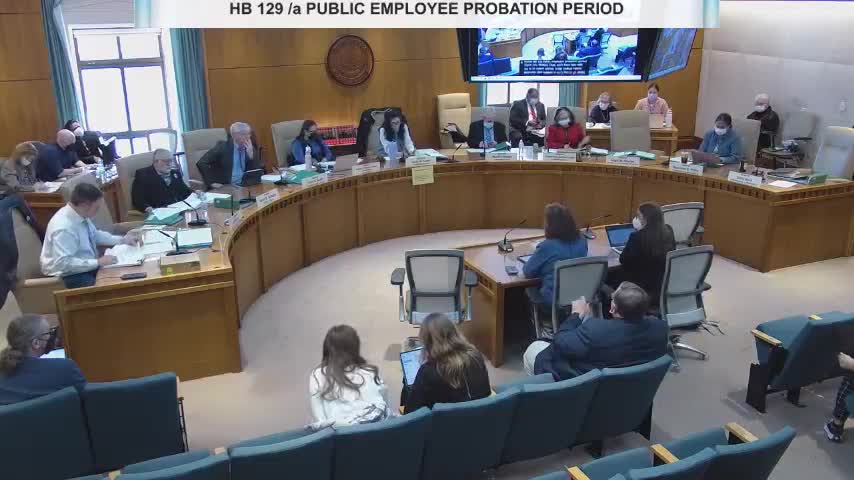Senate committee hears bill to cut state employee probationary period to 180 days
Get AI-powered insights, summaries, and transcripts
Subscribe
Summary
House Bill 129, presented to the Senate Health and Public Affairs Committee, would reduce the probationary period for classified state employees from one year to 180 days (about six months) and clarify that probation does not restart when an employee commences another classified service assignment unless there is a break in service.
House Bill 129, presented to the Senate Health and Public Affairs Committee, would reduce the probationary period for classified state employees from one year to 180 days (about six months) and clarify that probation does not restart when an employee commences another classified service assignment unless there is a break in service.
The change matters for hiring and retention, proponents said: shorter probationary periods are more consistent with many other jurisdictions and private employers. John Lipschutz of the New Mexico Federation of Labor told the committee, “we stand in strong support of this measure and in support of our public sector, workers, and we very much thank the sponsor for bringing this up.” Ann Keller, an 11-year state employee and treasurer of CWA Local 7076, said the bill would “promote employee recruitment and retention by bringing New Mexico in line with the city of Albuquerque, more than 20 other state governments, including our neighbors, Texas, Colorado, and Utah, and private industry.”
The presenter (on behalf of Representative Sapanski) summarized the bill’s main provisions and an amendment adopted in the House that altered language about transfers and service assignments. As the presenter explained, the House amendment replaced wording about moving to “a different state and change that to commence another classified and then service assignment providing exceptions” with clearer language stating probation does not restart after commencing another classified service assignment unless the employee has a break in service.
Committee members pressed staff and witnesses on how the shorter probation would interact with training requirements. Senator Scott asked whether training programs typically finish within a six-month period. Dylan Lang, State Personnel Director for the State of New Mexico, responded that training length varies by position: “It depends on the position. So, typically, a lot of positions will have a shorter training period. Some… it took probably over 2 years before I had completed all of the follow-up training for the position. So training is ongoing, essentially, for a lot of our specialized professionals.” Lang said the bill would apply to all classified employees and noted exempt employees are at-will and not subject to the classified probationary rules.
Lang also provided FY24 metrics from state personnel: he reported that 66% of classified service employees completed their probationary period in FY24 and that 8% were involuntarily separated; he attempted further clarification about the share that resulted in termination. The record does not include a formal vote; no motion or final committee action on the bill was recorded during the portion of the meeting in the transcript.
The committee heard support from labor and personnel officials on Zoom and in the room but did not record a vote during the public testimony and Q&A. The bill will return to the committee schedule for further consideration if and when members move it for a vote.
